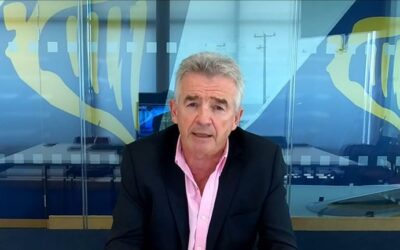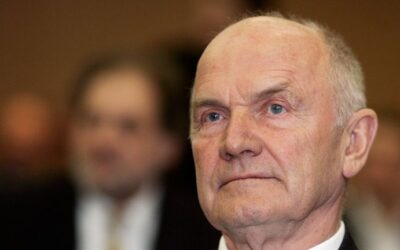Britain’s biggest banks are in talks to set up a new vehicle that would take charge of recovering tens of billions of pounds of COVID-19 debts as lenders seek to avoid a public relations crisis when the emergency loans fall due next year.
Sky News has learnt that the main banking lobby group, UK Finance, has commissioned a feasibility study for a “shared recoveries utility” that would seek to create distance between individual banks and the pursuit of repayments under the Bounce Back Loan Scheme (BBLS).
The talks are at an early stage, but underline the alarm within the major UK high street banks about the reputational risks associated with chasing money from well over one million embattled small businesses.
Under the BBLS, which has become the largest of Chancellor Rishi Sunak’s coronavirus lending schemes, companies can borrow up to £50,000 on an interest-free basis.
The loans are fully guaranteed by the government, but sit on individual banks’ balance sheets, meaning that they are responsible for collecting the money when it becomes repayable.
Advertisement
In July, the Treasury trumpeted the fact that more than 1 million Bounce Back Loans had been approved under the programme, and the most recent public figures showed that 1.17 million facilities had been approved with a total value of £35.47bn.
The latest figures, which are now being issued on a monthly basis, are to be published next Tuesday.
More from Covid-19
Where jobs have been lost across the UK
Even a stronger-than-anticipated recovery in the UK economy is likely to leave the banks sitting on billions of pounds of loan defaults under the BBLS.
The discussions about a shared recoveries utility have got underway in recent weeks, with EY, the accountancy firm, being asked to prepare a feasibility assessment for such a vehicle.
They have acquired greater urgency since the publication in July by TheCityUK’s Recapitalisation Group of a report suggesting that British businesses would have accumulated £100bn of unsustainable debt by the end of March 2021, of which £35bn would stem from government loan schemes.
Earlier this week, those figures were reduced to approximately £70bn and up to £23bn respectively – substantially lower but, nevertheless, still vast sums for banks to be tasked with collecting.
Banking industry sources said that any new vehicle would almost certainly be restricted to focusing on the BBLS, with larger loans offered under the Coronavirus Business Interruption Loan Scheme and the Coronavirus Large Business Interruption Loan Scheme remaining the responsibility of individual lenders to recover.
Loans made under the other two initiatives have an 80%, rather than 100%, state guarantee.
The new mechanism would require the endorsement of the City regulator, the Treasury and the British Business Bank, the government-owned lender which has been given responsibility for administering Mr Sunak’s emergency schemes.
Although it appears attractive to bank executives anxious not to be cast as the villains of the coronavirus pandemic – which would reprise their role during the 2008 financial crisis – establishing such a vehicle is likely to be fiendishly complicated.
April: Is the government’s loan scheme working?
The new utility would need to be given powers to pursue loan recoveries, while providing the manpower required to collect well over 1 million individual loans could also prove too complex to organise.
A source at one lender said the advantage of a shared utility would be to guarantee that all participating lenders under the BBLS were employing the same guidelines, providing a consistency of experience for exposed SME customers.
“There would be the benefit of acting with one, agreed industry-wide recovery protocol and the new utility would act semi-autonomously,” the source said.
“That would give the British Business Bank confidence that the banks were not just going through the motions and then cashing in the government guarantee.”
The discussions about a new vehicle go well beyond previously reported talks about a code of conduct that the major lenders and Treasury had been discussing.
UK Finance and EY declined to comment.





